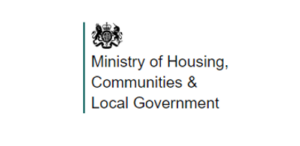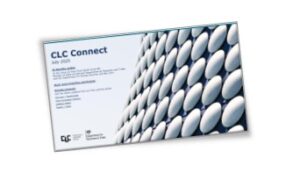Domestic Repairs, Maintenance and Improvement
Scope
The CLC’s Domestic Repair, Maintenance & Improvement (RMI) Taskforce, delivered through the National Home Improvement Council (NHIC), which leads industry efforts to elevate standards, shape policy, and champion best practices in home improvement. NHIC’s strategic leadership ensures a unified, industry-driven approach to enhancing the UK’s RMI sector’s quality, compliance, and sustainability.
Shaping the Future of Home Improvement
The home improvement sector is evolving rapidly, driven by the need for higher standards, sustainable practices, and consumer confidence. To ensure long-term success, the industry must focus on key areas that enhance quality, safety, and environmental responsibility.
This approach is built on five core priorities:
- Collaboration – strengthening partnerships between industry bodies, trade associations, and government to drive meaningful progress.
- Compliance – ensuring alignment with evolving standards and regulations to uphold safety, quality and best practices.
- Carbon reduction – embedding sustainability in everyday home improvement projects and large-scale whole-house retrofits to support net-zero targets.
- Consumer confidence – building trust in the sector through transparent processes, accredited professionals and improved protections for homeowners.
- Tradesperson Competence – providing robust training and accreditation pathways to equip installers and tradespeople with the skills needed for a high-performing industry.
By prioritising these elements, the CLC RMI taskforce is working to create a more efficient, responsible, and trusted home improvement sector that is ready to meet today’s challenges while preparing for tomorrow’s innovation.
CLC RMI Working Groups
WG1 | Competence, Compliance & Quality, Chaired by Jon Vanstone, Chair of Industry Competence Committee (Building Safety Regulator)
- Strengthening skills, accreditation, and professional standards in the RMI workforce to ensure safe and high-quality installations.
- Supporting the implementation of PAS 2035 and PAS 2030 across the home retrofit and energy efficiency sectors.
- Ensuring building safety regulations are understood and applied in RMI projects, particularly concerning fire safety, insulation, and ventilation.
- Advocating for third-party certification and accredited assurance schemes, ensuring only competent professionals undertake work on UK homes.
- Ensuring tradesperson well-being and mental resilience are integrated into installer competency frameworks, recognising the impact of mental health on safety, productivity and compliance.
WG2 | Consumer Voice & Tradesperson Support, Chaired by Anna Thompson, LABC
- Improving consumer protection and homeowner confidence in the home improvement sector through trustworthy accreditation schemes and dispute resolution mechanisms.
- Advocating for greater access to finance and support for SMEs, ensuring small builders and tradespeople can continue to thrive in the RMI market.
- Encouraging best practice in contracts, warranties, and post-installation service, helping homeowners navigate the home improvement process with confidence.
- Engaging installers, builders, and industry professionals in policy discussions, ensuring those on the ground have a voice in shaping regulations and frameworks.
WG3 | Carbon & Energy Efficiency. Chris Beedel (GGF) and Sandy MacGregor (EnergyStore)
- Supporting the delivery of the National Retrofit Strategy, ensuring the UK’s homes are upgraded to meet net-zero targets and improve energy efficiency.
- Promoting fabric-first approaches to insulation and energy-saving technologies in RMI projects.
- Ensuring clear pathways for tradespeople and homeowners to access government incentives and funding schemes for energy-efficient home improvements.
- Collaborating with industry and government to ensure high-quality delivery of low-carbon solutions, such as heat pumps, solar energy, and whole-home retrofits.
- Supporting the National Retrofit Hub to deliver housing retrofit at scale.
A Unified Approach to Industry Leadership
The CLC RMI Taskforce ensures that the strategic priorities of competence, compliance, consumer voice, and energy efficiency are supported by authentic industry leadership, action, and delivery. This proactive, output-driven collaboration and industry engagement activities drive the task force’s objectives forward.
As part of this collaboration, CLC is working alongside industry to deliver the UK’s key RMI-focused industry events in 2025, ensuring that the conversations shaping the future of home improvement are taking place at the right level.
Forward look: 2026 activity (RMI Workstream) – Looking ahead to 2026, the CLC RMI workstream will continue to support coordinated industry leadership, delivery readiness, and sector engagement through a structured programme of working groups, events and publications.
Working Groups – All RMI working groups (WG1–WG4) will continue to meet on a monthly basis throughout 2026, maintaining regular engagement with industry, delivery partners and government observers on competence, skills, carbon and energy efficiency, and consumer confidence.
Webinars (delivered in partnership with installershow online)
- Spring 2026 Webinar (April – stress awareness month) – A webinar focused on mental health, systems and career support in the domestic RMI sector — looking at the real-world pressures on SMEs and installers, what “good” support looks like in practice, and how the sector can reduce friction, strengthen confidence and support sustainable careers, aligned to the CSMB RMI Skills programme.
- Autumn 2026 Webinar (September) Focused on Safety, Wellbeing and System Performance, examining how competence, assurance, workload, system design, and delivery models interact on the ground, and what needs to change to support safe, high-quality everyday construction.
InstallerSHOW 2026 – NEC Birmingham (23–25 June 2026)
The CLC RMI workstream will have a strong presence at InstallerSHOW 2026, with NHIC and the Construction Leadership Council jointly hosting the Housing Hub.
Across the three days, the Hub will deliver:
- Curated panel sessions and discussions aligned to Impact 2030 – the 3Rs – (Reduce harm and poor practice, Respect people and skills, Rebuild trust in everyday construction)
- Practical, installer-focused conversations addressing the realities of SME delivery, including skills, competence, consumer confidence, and everyday work in homes
- Free drop-in advice clinics for installers and SMEs, offering practical guidance from trusted experts on building safety, mental health and wellbeing, planning and building control, competence and assurance systems, and related compliance and consumer-protection issues
The Housing Hub will provide a focal point for installer-focused engagement, reflecting where most people experience construction and where delivery challenges and opportunities converge.
Parliamentary event and live panel debate – 7th October 2026 – The RMI workstream will support a Parliamentary event and live panel debate on 7th October 2026, bringing together Members of the House of Lords, government, and industry stakeholders to explore RMI delivery, workforce readiness, and system leadership.
(The panel debate will align with the RMI workstream’s autumn focus.)
elementalLONDON 2026 – ExCeL London (25–26 November 2026) – The RMI workstream will also engage at elementalLONDON 2026, supporting knowledge-sharing and discussion across retrofit, energy efficiency, skills, and delivery models, building on learning from the year’s workstream activity.
Through these events, the CLC RMI Taskforce ensures the home improvement sector remains central to discussions on skills, sustainability, and policy development.
Our Work in Action
A broad industry coalition supports the CLC RMI Taskforce. Over 50 organisations contribute to monthly meetings on key themes. In addition to these regular discussions, task-and-finish groups meet as needed to focus on specific challenges and drive progress in targeted areas.
Key lead organisations chair sub-groups, activating their networks and memberships to gather information, provide feedback, and shape industry-wide recommendations.
This collaborative approach ensures that the task force’s work is deeply informed by real-world industry expertise and responsive to emerging needs.
The task force collaborates with key industry organisations, including:
- NHIC – Driving competence, compliance, and consumer protection in home improvement
- Federation of Master Builders (FMB) – Championing SME engagement and best practices in small-scale building and home improvement.
- The Builders Merchants Federation (BMF) – Supporting the supply chain, material efficiency, and workforce development in the home improvement sector.
- Chartered Institute of Building (CIOB) – Promoting professional standards, education, and competency development for RMI professionals.
- LABC (Local Authority Building Control) – Advocating for building safety, compliance, and regulation enforcement in the home improvement sector.
- CERTASS – Supporting installer certification, quality assurance, and consumer confidence in home improvement projects.
- TrustMark – Ensuring accreditation standards and regulatory frameworks support a safe and skilled workforce.
- The National Retrofit Hub – Providing industry alignment to deliver at-scale low-carbon retrofit solutions and building decarbonisation.
- Digital Buildings & Smart Home Innovation – Exploring how digital technology, data, and AI-driven solutions can improve building performance, home energy efficiency, and remote diagnostics for the RMI sector.
The task force drives industry discussions and research, ensuring that repair, maintenance, and home improvement work meets high standards and supports the UK’s climate, safety, and housing objectives. With the growing role of digital tools, smart technology, and data-driven insights in the sector, the task force is working to ensure best practices for digital integration are aligned with industry needs, installer training, and consumer protection.
Resources and Insights
The CLC RMI Taskforce is committed to providing trusted resources, best practices, and real-world examples to support installers, tradespeople, SMEs, and homeowners. Below are essential industry insights, including Doorstep Digests, case studies, policy updates, and training resources to help you navigate the evolving home improvement sector.
Industry Reports & Guidance
Stay informed with the latest policy updates, research, and industry recommendations shaping the UK’s repair, maintenance, and home improvement (RMI) sector.
- Building Safety & Compliance Reports – Guidance on PAS 2035, PAS 2030, and regulatory changes.
- The Future of Low-Carbon Homes – Key insights into sustainable retrofits, heat pump adoption, and energy efficiency policies.
- Consumer Protection & Trust in Home Improvement – Best practices for installer accreditation, warranties, and dispute resolution.
- SME & Installer Business Support – Reports on finance, insurance-backed guarantees, and market opportunities for small businesses.
CSMB Working Group Reports and Guidance
The following publications have been commissioned by the Construction Skills Mission Board (CSMB) and are published by the Construction Leadership Council. They provide evidence-led insight into workforce capability, competence, compliance and delivery readiness across the domestic repair, maintenance, and improvement (RMI) sector, supporting industry and government engagement.
a) WG4 – RMI Skills outputs
CSMB RMI Skills Working Group
b) WG1 – CCQ output
CSMB Competence, Compliance and Quality (CCQ) Working Group
Doorstep Digests – Practical Guides for Installers & Homeowners
The Doorstep Digests series offers practical, easy-to-follow guides on key home improvement topics designed for tradespeople and homeowners.
Featured Digests:
- Understanding Building Safety Regulations – What homeowners & installers need to know about compliance.
- Energy Efficiency Upgrades Explained – A step-by-step guide to retrofitting homes for lower energy bills.
- Hiring a Trustworthy Installer – Essential tips for homeowners to choose accredited professionals.
- Installer Best Practices for Consumer Confidence – How to communicate with customers & avoid disputes.
Case Studies – Real-World Industry Success Stories
Explore real-life examples of best practice, innovation, and compliance in the home improvement sector.
Recent Case Studies:
- Building Compliance in Action – How an SME installer successfully adapted to PAS 2035 regulations.
- Delivering a Low-Carbon Home Retrofit – A full home energy efficiency upgrade using heat pumps & insulation.
- Consumer Confidence & Trust – A homeowner’s journey in choosing a fully accredited installer.
- SME Success: Growing a Small Builder Business – How a local tradesperson scaled operations while maintaining compliance.
Training & Competence Development
Ensuring workforce competence is at the heart of the CLC RMI Taskforce’s mission. This section provides resources for installer training, CPD (Continuing Professional Development), and accreditation schemes.
Training & CPD Opportunities:
- Accreditation Pathways – Routes to TrustMark, MCS, and PAS 2030 certification.
- Skills Development for Low-Carbon Homes – Upskilling for net-zero and retrofit professionals.
- Mental Health & Wellbeing in Home Improvement – Resources to support installers and tradespeople.
Get Involved & Stay Updated
We encourage installers, SMEs, and industry professionals to engage with these resources and contribute to developing best practices in home improvement.
Want to submit a case study or suggest a new Doorstep Digest topic? Get in touch with us at gemmamarsh@nhic.org.uk .
Sign up for our industry newsletter to receive the latest updates! [Subscribe to Updates]
Join us in shaping the future of home improvement. The CLC RMI Taskforce, delivered through the NHIC, collaborates with builders, trade, policymakers, and industry leaders to drive real change in competence compliances, consumer protections, and energy efficiencies. If your organisation wants to contribute to this industry-wide movement, contact Gemma Marsh at GemmaMarsh@NHIC.ORG.UK.
Governance
News

London’s Build Academy welcomes Minister for Industry
Funded by CITB in partnership with FMB and London’s Shooters Hill Sixth Form College, gives the next generation the practical skills and experience they need for a career in construction

New RMI Workstream Reports Published
CLC Publishes two reports through its RMI workstream, addressing workforce readiness, skills and standards across the domestic RMI sector

Improving the Energy Efficiency of Socially Rented Homes in England
MHCLG and DESNZ publish consultation

Reformed Decent Homes Standard for Social and Privately Rented Homes
MHCLG publishes consultation





